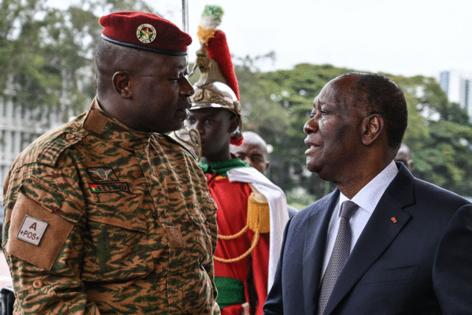Ivory Coast leader wins fourth term as main rivals sidelined
Published in News & Features
Ivory Coast’s octogenarian leader won a fourth term in elections that excluded his main rivals.
Alassane Ouattara, 83, was proclaimed the winner of Saturday’s ballot with 89.8% of the vote, according to results released by the country’s election commission.
Of the four candidates that were allowed to challenge Ouattara, Simone Gbagbo, a former first lady, got 2.4% while ex-trade minister and businessman Jean-Louis Billon secured 3.1%, the commission said. Voter turnout was 50.1%, it said.
Former Credit Suisse AG Chief Executive Officer Tidjane Thiam was barred from standing by an Ivorian court because he held French citizenship when he registered to run, while ex-President Laurent Gbagbo was blocked because of a prior criminal conviction.
The victory potentially extends Ouattara’s stay in power to 20 years if he serves out a full term. He took power in the world’s top cocoa producer in 2011 following a civil war triggered when Gbagbo refused to concede defeat after elections held the year before.
Francois Conradie, lead political economist at Oxford Economics, said the pattern of excluding strong opposition figures from contesting elections showed the West African nation’s democracy was “flawed.” The rare exception was 2010 and that led to civil war.
Voters had been expected to convincingly back Ouattara because of the weakened opposition, as well as his economic track record of having presided over one of Africa’s best growth stories.
Gross domestic product has expanded by an average of about 6% annually since he took power, buoyed by large infrastructure investments and the discovery of oil deposits.
He has also prioritized security in a region that’s been knocked by instability, including a rash of military coups in neighboring Mali, Guinea and Burkina Faso.
“Ouattara has kept the peace since he became president, and that is a big factor in his genuine popularity,” said Conradie. “His win is good news for peace over the next term.”
Ouattara has pledged to step up his infrastructure investment drive with a view to getting Ivory Coast admitted to the ranks of upper middle-income countries by 2030. He also intends to increase electricity output and fire up manufacturing and mining.
The yield on Ivorian dollar bonds due in 2036 has fallen more than 100 basis points to 7.3% since Ouattara confirmed his candidacy on July 29.
Ivory Coast’s debt is rated Ba2 at Moody’s Investors Service, two levels below investment grade and on par with South Africa.
_____
(With assistance from Moses Mozart Dzawu, Monique Vanek and Katarina Höije.)
_____
©2025 Bloomberg L.P. Visit bloomberg.com. Distributed by Tribune Content Agency, LLC.







Comments